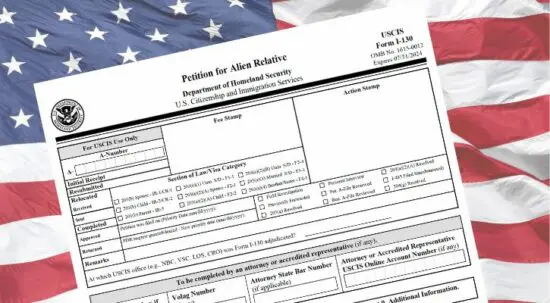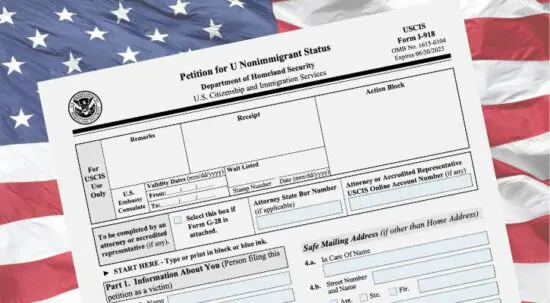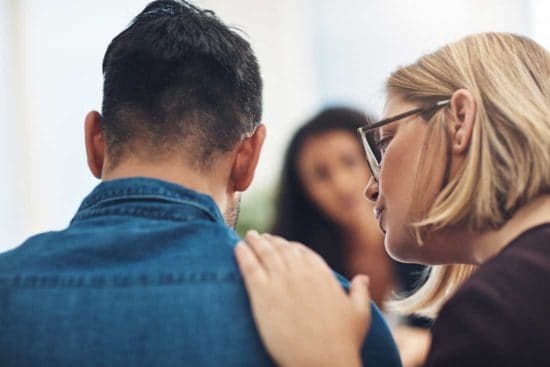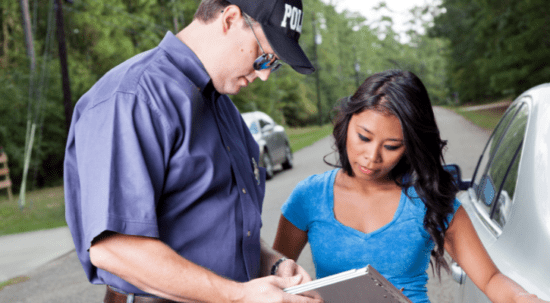如欲快速离开此页面,请单击红色退出按钮。施虐者可能会查看您的上网记录,请务必清除您的浏览器历史记录。
现在需要帮助吗?向下跳转以获取帮助信息。
什么是家庭暴力?
家庭暴力是指您的家人或家庭中的某人试图控制或伤害您。这也被称为亲密伴侣暴力或家庭虐待。
它可能发生在任何人身上,无论年龄、种族、性别、性取向或宗教信仰如何。虽然大多数报告的案件涉及女性,但男性也可能成为受害者。家庭暴力通常指亲密伴侣之间的虐待行为,但也可能包括:
- 配偶或伴侣
- 前任伴侣
- 与您有孩子的人
- 家庭成员,如父母、子女或兄弟姐妹
- 室友或与您同住的人
虐待类型
家庭暴力的常见迹象包括:
- 对身体造成伤害,例如打、踢、推或投掷物体。这称为身体虐待。
- 不想要的触摸,如不想要的亲吻或性行为,或强迫您发生性行为。这甚至可以被视为婚姻中的虐待行为。
- 刻薄和伤人的话语,例如威胁、辱骂、大喊大叫或在他人面前让您难堪。这被称为情感虐待。
- 控制您的钱财,如拿走您的钱财、拒绝为您提供满足基本需求的钱财或限制您使用银行账户。
- 替您做决定,强迫您做您不想做的事,以及其他控制您的方式。
- 检查你的手机和网络 信息,或密切关注你所做的事情,想知道你是如何打发时间的。
- 让您远离朋友、家人和社区,不让您与他们见面或交谈,或将您与自己的文化或宗教社区隔离开。
- 不请自来,尾随您,或发送大量信息或电话,让您感到害怕。这可以被视为跟踪。
- 侮辱或威胁您的亲人,或破坏您的财产和您关心的东西。
- 使用武器吓唬你,比如用刀、枪或球棒威胁。
- 不允许你工作或上学。
- 极度嫉妒您和您的朋友,或指责您欺骗他人。
家庭暴力包括各种行为,不一定都是身体上的暴力。这些迹象可能要等到关系发展到更深层次时才会显现出来,或者会周期性地出现。
| 许多遭受家庭暴力的幸存者会把遭受虐待的责任归咎于自己。请记住,家庭暴力绝不是您的错。 |
您可能很难知道您所关心的人是否正在遭受虐待。
常见的迹象可能是:
- 不明原因的瘀伤和外伤
- 经常旷工、旷课或缺席社交活动
- 避开朋友和家人
- 对受伤和缺勤的不寻常和频繁的解释
- 缺乏自尊心或自我价值感
- 性格或情绪的变化
- 不愿谈论他们的关系
- 在可能受到虐待时显得不自在或害怕
如果您注意到这些情况,请询问是否一切正常。
看到您关心的人受到虐待可能会很难受,但您可以做一些事情来帮助他们。
- 在施虐者无法偷听的安全和私密环境中与他们交谈。
- 不要对他们妄加评论,练习做一个好的倾听者。
- 不要给他们施加压力,让他们做任何他们不想做的事情。他们最了解自己的情况。
- 查找他们可以获得帮助的地方,并与他们分享。
- 主动保留重要文件和受虐待证据。
- 拨打帮助热线!他们也会支持你,并提供有用的建议。
移民与虐待
遭受虐待的移民可能因其移民身份而面临独特的挑战。您可能会感到与社区隔绝,并且获得的支持有限。您可能不了解美国的家庭暴力法律和权利。
施虐者可能会利用您的移民身份来控制您或阻止您寻求帮助。施虐者可能会利用您对被驱逐出境的恐惧来阻止您举报虐待行为。
常见的例子可能是施虐者:
- 拘留您的移民文件
- 阻止您获取身份证明文件
- 销毁驾照和护照等法律文件
- 阻止您提交移民申请
- 拒绝代表你提交移民申请
- 威胁您或您的亲人将被驱逐出境
- 阻碍您学习英语
寻求移民帮助
在美国,遭受家庭暴力的移民可以得到帮助。您也许可以:
- 如果施虐者是美国公民或永久居民,则通过《防止对妇女施暴法》(VAWA) 获得特殊移民身份。
- 申请 U 类签证,该签证允许移民受害者留在美国,合法工作并享受公共福利。
| 在考虑您的选择时,获得法律建议非常重要。律师或授权代表可以帮助您了解您是否符合条件并完成申请。许多组织和律师提供免费或低成本的法律援助。 |
了解您的权利
了解自己的权利和美国法律非常重要。无论您的移民身份如何,您都有权获得安全和支持。
任何遭受家庭虐待的人都有权获得:
- 执法部门的帮助
- 对施虐者提起刑事诉讼
- 紧急避难所
- 紧急医疗护理
- 短期住房
- 危机咨询
- 社区服务
- 保护令
- 子女监护权和抚养权
- 在未经配偶同意的情况下合法分居或离婚
对于移民来说,了解这些也很重要:
获取帮助
有许多服务机构想要为您提供帮助。您还可以找到专门针对来自您所在国家/地区或说您语言的人的帮助。
您可以迈出这第一步:
- 制定安全计划,做好应对危机的准备。这包括离开虐待环境之前和之后。
- 记录你所遭受的虐待。拍摄您的受伤照片和威胁信息的屏幕截图。
- 与您信任的人交谈。这可以是朋友、家人、老师、学校辅导员、邻居或社区领袖。
- 打电话或发短信 提供免费匿名帮助的帮助热线。帮助热线由训练有素的专业人员提供指导和支持。
- 向社区组织寻求帮助。他们可以提供多种帮助,比如咨询服务、住所安置以及法律援助。
- 咨询移民律师。获取有关您的权利和法律保护选项的建议。
- 寻求心理健康方面的帮助。虐待会影响您的幸福和健康。了解如何寻求心理健康服务。
| 如果您担心有人在监视您的互联网使用情况,请清除您的浏览历史记录并使用隐私模式。您也可以使用朋友的设备或图书馆的计算机来提高安全性。 |
举报家庭暴力
家庭暴力是违法的。您可以随时向警方举报虐待行为。
以下是您可以执行的操作:
- 如果您需要医疗帮助,请前往警察局或医院。您可以在那里报警。
- 如果有紧急情况,请与前来提供帮助的警官交谈。保持冷静,说出真相。
- 如果您的伴侣持有枪支或其他武器,并且对他们的逮捕令或限制令,请告知警方。
- 如果警察来访,您可以要求与他们交谈。您不必签署您无法阅读或理解的文件。
- 查看当地的危机中心或庇护所是否可以帮助您进行报告。
- 阅读更多报警提示。
您还可以考虑申请保护令,以阻止施虐者靠近您或虐待您和其他人。您必须出席听证会并作证。保护令可以持续数年,并可能延长。
| 每个州都有与家庭暴力有关的具体法律。了解您所在州的限制令、离婚、监护权和子女抚养情况。 |
热线和其他帮助
热线和组织为家庭暴力幸存者提供免费且保密的支持。他们可以帮助您制定安全计划,找到安全的避难所,并提供心理健康支持和法律建议。
他们会询问有关您的情况的信息,以帮助您找出可用的选项。您不必透露任何您不想透露的细节。未经您的许可,他们不会共享您的信息或报告您的受虐待行为。
组织结构 | 提供 |
|---|---|
24 小时热线,提供 200 多种语言服务。它们还列出了本地服务。 | |
强奸、虐待和乱伦全国网络 (RAINN) 800-656-4673 | 24小时性侵犯热线。还提供西班牙语版本。 |
全国犯罪受害者中心 (NCVC) 855-484-2846 | 犯罪受害者热线。 |
爱就是尊重 866-331-9474 TTY 800-787-3224 | 为青少年和年轻人提供 24 小时热线。还提供西班牙语版本。 |
Womankind 888-888-7702 | 24 小时热线。还提供西班牙语和 18 种亚洲语言版本。 |
National Child Abuse Hotline 800-422-4453 | 24 小时热线,为虐待儿童问题提供指导。这不是举报电话。 |
法律信息和电子邮件热线。 | |
为移民幸存者提供法律帮助。 | |
搜索您附近的庇护所和家庭暴力计划。 | |
搜索帮助性侵犯幸存者的组织列表。 | |
查找您附近的中心。 | |
搜索帮助穆斯林社区的组织列表。 | |
有关虐待年长者的资源。 | |
阿富汗政治庇护热线 888-991-0852 | 可以用达里语和普什图语提供帮助的一般帮助热线。 |
本页信息来自 National Domestic Violence Hotline, USCIS, Esperanza United, 和其他可信来源。 我们的目标是提供简单易懂、定期更新的信息。 本信息并非法律建议。






